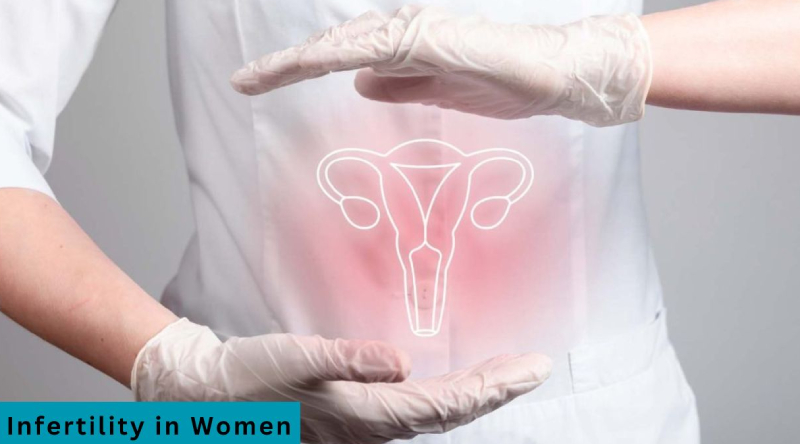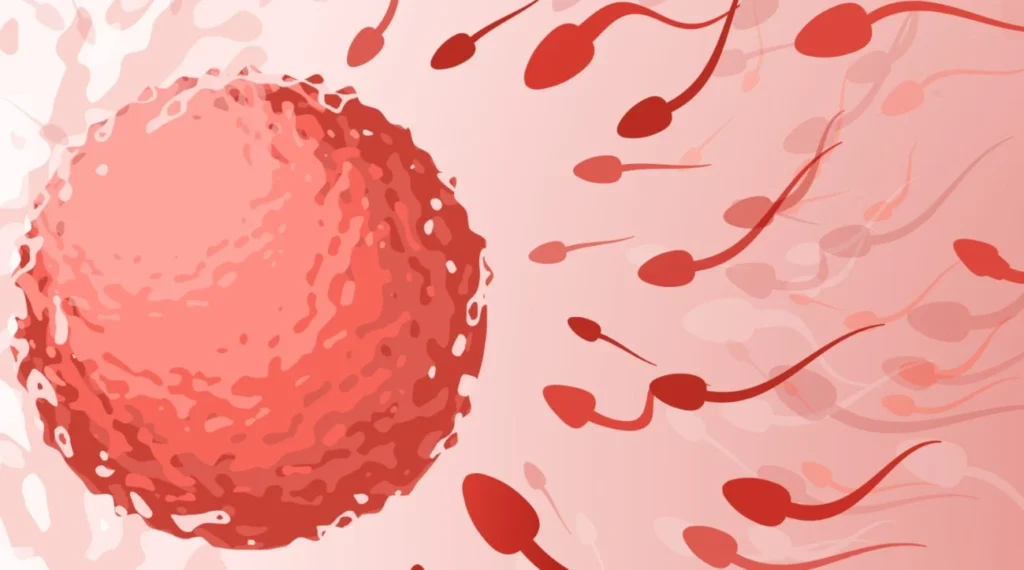infertility treatment in Bhopal
What is Infertility?
Female infertility occurs when a couple is unable to conceive even after trying for a year without using any protection. Sometimes, even when everything seems normal, pregnancy may still not occur. This can happen due to several factors related to the reproductive organs, including the ovaries, fallopian tubes, or uterus. If you are experiencing difficulty in conceiving, it is essential to consult a qualified specialist. Dr. Viraj Jaiswal, an experienced obstetrician-gynecologist at Maan Hospital, offers advanced infertility treatment in Bhopal with a personalized approach. He focuses on accurate diagnosis, compassionate guidance, and effective treatment options to help couples overcome fertility challenges.
With the right care and timely support, many couples can successfully achieve their dream of parenthood. Choosing expert infertility treatment in Bhopal ensures you receive the best evaluation and management for your fertility concerns.

How to Improve the Chances of Getting Pregnant?
Some women get pregnant easily, but for others, it may take more time and effort. Here are some ways to improve the chances of having a baby:

Track Ovulation
Knowing when your body releases an egg can help. There are tools called ovulation kits that can tell you the best time to try to get pregnant.

Healthy Habits
Eating healthy food, exercising, and staying at a good weight can make your body work better, including helping you get pregnant. Overweight or underweight can make it more difficult to conceive.

Talk to a Doctor
If pregnancy doesn’t happen after a year of trying, it’s a good idea to see a doctor who knows about fertility, like an infertility specialist in Bhopal. They can help figure out what might be wrong.
What Causes Female Infertility?
There are several reasons why a woman may not be able to get pregnant, such as:
Ovulation Problems
Sometimes, a woman’s body doesn’t release an egg regularly. This can happen because of conditions like PCOS, where the ovaries don’t work normally.
Blocked Fallopian Tubes
The fallopian tubes can get blocked because of infections or previous surgeries, stopping the sperm from meeting the egg.
Endometriosis
This is when tissue that’s supposed to grow inside the uterus starts growing outside it. It can cause pain and occasionally inhibit pregnancy.
Getting Older
As women become older, their chances of becoming pregnant decrease, particularly beyond the age of 35. This is because the eggs get older as well.
Problems with the Uterus
If the uterus has problems like fibroids (which are like lumps) or are shaped differently, it can make it hard for the fertilized egg to attach and grow.
Signs of Female Infertility
The most obvious indicator of infertility is the inability to conceive after a long period of trying. Other indicators could be:
- Irregular Periods: If a woman’s periods are not regular, or if she doesn’t get her period for several months, it could mean there is a problem with ovulation.
- Painful Periods: Really painful periods might be a sign of conditions like endometriosis, which can affect fertility.

How Do Doctors Find Out If Someone Is Infertile?
If a woman thinks she might have trouble getting pregnant, doctors can do several tests to find out why:
Blood Tests
These tests assess hormone levels to see if the lady is ovulating.
Ultrasound
This is a scan that shows pictures of the ovaries and uterus. It can help doctor’s spot problems like cysts or fibroids.
Hysterosalpingography (HSG)
This X-ray determines whether the fallopian tubes are open or blocked.
Laparoscopy
This is a small surgery where doctors look inside the body with a camera to see if there are problems like endometriosis.
What Puts a Woman at Risk of Infertility?
Certain things can make it harder for women to get pregnant, such as:
- Age: As women get older, especially after 35, it gets harder to have a baby.
- Bad Habits: Smoking, drinking too much alcohol, and not eating healthy can hurt a woman’s chances of getting pregnant.
- Weight Problems: Being too thin or too heavy can affect a woman’s ability to ovulate.
- Other Health Conditions: Diseases like diabetes or problems with the thyroid can also cause infertility.
How is Female Infertility Treated?
Once the doctors figure out what’s causing the infertility, they can suggest different treatments:
Surgery
If there are issues like blocked fallopian tubes, doctors do surgery to fix them.

Medications
There are special medicines that can help women ovulate if that’s the problem

ART
There doctors take the egg and sperm, put together in a lab to fertilize, and then place the fertilized egg back in the uterus.

Can Female Infertility Be Prevented?
While it’s not always possible to prevent infertility, there are things women can do to keep their bodies healthy and improve their chances of getting pregnant:
- Stay at a Healthy Weight: Try not to be too thin or too heavy because it can make it harder to ovulate.
- Don’t Smoke or Drink Too Much: Smoking and heavy drinking can damage your reproductive system and lower your chances of getting pregnant.
- Reduce Stress: Feeling stressed can affect your health in many ways, including your ability to get pregnant. It’s important to find time to relax.
Frequently Asked Questions
Common causes include ovulation problems, blocked fallopian tubes, endometriosis, uterine abnormalities, and age-related factors. Conditions like polycystic ovary syndrome (PCOS) and hormonal imbalances can also play a role. If you’re facing any of these issues, it’s essential to consult an infertility doctor in Bhopal for proper diagnosis and treatment.
Pregnancy occurs when an egg from the ovaries is released during ovulation, meets sperm in the fallopian tube, gets fertilized, and then implants itself in the uterus to grow into a baby. If this process is disrupted, visit an infertility specialist like Viraj Jaiswal in Bhopal can help determine the cause and provide infertility treatment.
Doctors may use blood tests to check hormone levels, ultrasound to look at the reproductive organs, or specialized X-rays like hysterosalpingography (HSG) to check if the fallopian tubes are blocked. For accurate diagnosis and infertility treatment in Bhopal, an expert like Viraj Jaiswal at Maan Hospital can help.
Treatments include medications to stimulate ovulation, surgery to fix blockages or other problems, and assisted reproductive technologies like in vitro fertilization (IVF). Infertility treatment in Bhopal at Maan Hospital can include any of these methods, depending on the specific condition.
Yes, maintaining a healthy weight, avoiding smoking and excessive alcohol, and managing stress can improve fertility. Regular exercise and a balanced diet also support reproductive health. For a comprehensive plan, consult an infertility doctor in Bhopal.
An infertility specialist like Dr. Viraj Jaiswal in Bhopal at Maan Hospital can diagnose the specific cause of infertility and suggest personalized treatments, whether through medications, surgeries, or advanced reproductive techniques like IVF.




